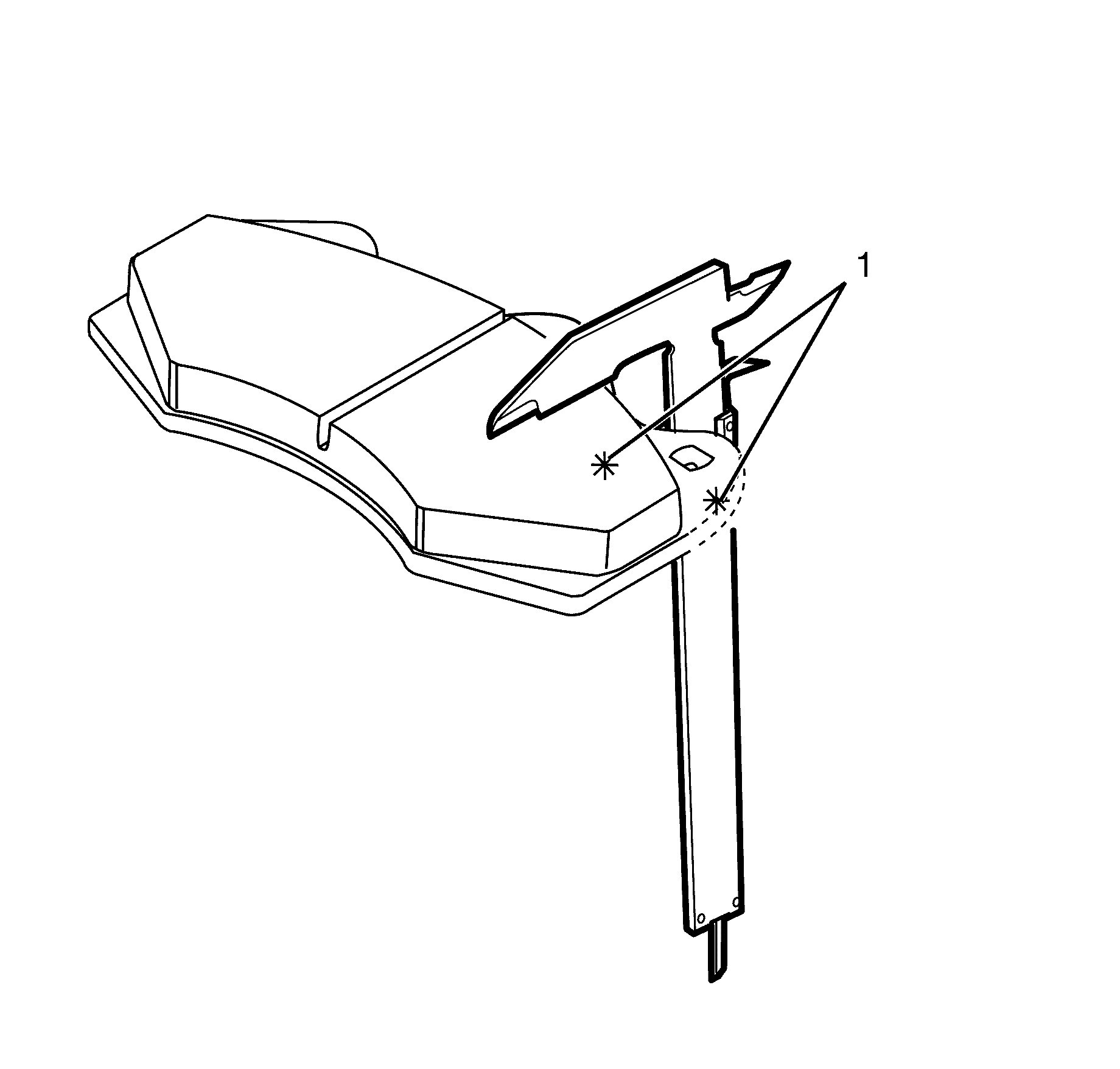For 1990-2009 cars only
- Raise and support the vehicle. Refer to Lifting and Jacking the Vehicle in General Information.
- Remove the front wheels. Refer to Tire and Wheel Removal and Installation in Tyres and Wheels.
- Carry out a visual inspection of the front brake assemblies.
- If further inspection is required, remove the front brake pads. Refer to Front Disc Brake Pads Replacement in Disc Brakes.
- Using a vernier caliper gauge on the outer brake pad, take note of the measurement from the brake pad backing plate to the brake pad friction surface between two points (1).
- Using a vernier caliper gauge on the inner brake pad, take note of the measurement from the brake pad backing plate to the brake pad friction surface between two points (1).
- Replace the brake pads if:
- Verify that any disc brake pad shims that may be required are in place and not damaged or excessively corroded. Replace any missing or damaged shims in order to preserve proper disc brake performance.
- Replace the disc brake pads if any brake pad friction material has separated from the brake pad backing plates.
- Inspect the disc brake pads friction surfaces for cracks, fractures, or damage which may cause noise or otherwise impair disc brake performance.
- Inspect the noise insulators on the brake pad backing plate. Replace the brake pads if the noise insulators have separated from the brake pad backing plate.
- Install the front wheels. Refer to Tire and Wheel Removal and Installation in Tyres and Wheels.
- Lower the vehicle to the ground. Refer to Lifting and Jacking the Vehicle in General Information.
Caution: Refer to Safety Glasses Caution in the Preface section.
Caution: Refer to Vehicle Lifting Caution in the Preface section.
Caution: Refer to Brake Dust Caution in the Preface section.
Important: Make sure shims are securely affixed to the backing plate of the brake pads.
| • | Inspect both edges of the disc brake pad friction surfaces (3). The highest rate of wear normally occurs at the trailing edge of the disc brake pads. |
| • | Inspect the thickness of the disc brake pads (3) in order to ensure that they have not worn excessively. The disc brake pad wear should be approximately even per axle set. |

| • | Either reading is 3.0 mm or less. |
| • | If there is more than 2.0 mm variation between the inner and outer brake pad reading. |
| • | If there is more than 2.0 mm difference between the leading and trailing edge of the same brake pad. |
